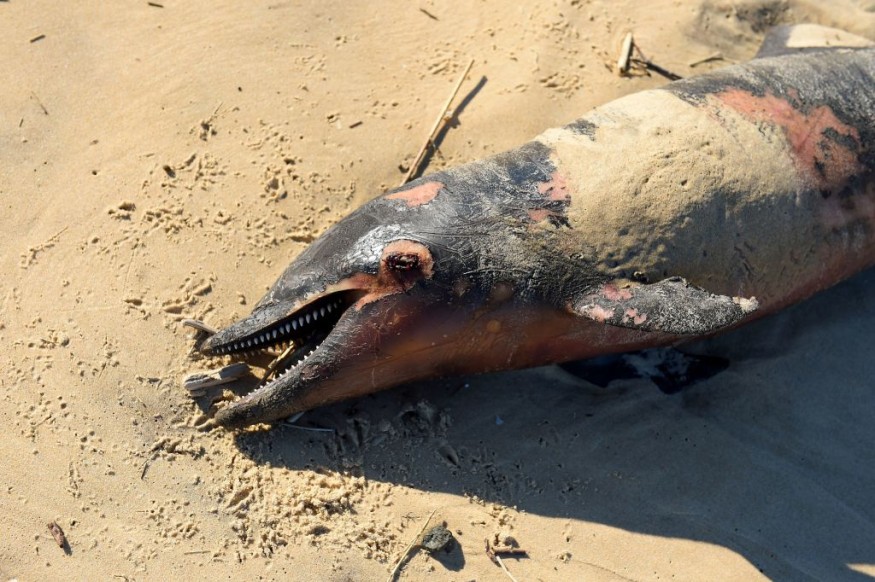A dolphin in Florida impaled with a "spear-like object" was found deceased on the Gulf Coast.
Federal officials appealed for help to determine the marine mammal's killer to justice.
The reason for the killing remains unclear, but initial investigation revealed the dolphin was stabbed while still alive.
The incident adds to the growing number of cases of dolphin killings in the past 20 years, in spite of the existing animal rights and welfare laws protecting sea creatures and other marine mammal species.
Dolphin Killing

Local authorities recovered a bottlenose dolphin at the For Myers Beach on March 24.
The body of the mammal had a wound on its right eye and the non-human autopsy, necropsy, revealed that the object plunged into the head of the mammal while it was still alive, as per a statement from the news page of the National Oceanic and Atmospheric Administration (NOAA).
Following the incident, the NOAA's Office of Law Enforcement is requesting any information about the dead dolphin, which was also reportedly an adult lactating female.
Based on the necropsy, the animal appeared to have died due to trauma from the stab wound.
The NOAA law enforcement officials announced they may be reached through their hotline and anonymous tips may also be left.
Initial Assessment: Begging Position
The NOAA stated that the dolphin died while in a begging position based on the characteristics, shape, and size of the wound.
The US agency emphasized that begging is not a natural behavior of dolphins since it is linked with illegal feeding.
Based on the findings, it appears that the perpetrator may have lured the dolphin first through intentional feed baiting.
The NOAA reiterated that a dolphin once fed by people tends to associate boats, fishing gear, and people with food, urging the public to refrain from feeding wild dolphins to avoid future harm.
The begging posture is evident in some animals, especially when they are in a state of hunger.
Marine Mammal Protection Act
Under the United States' Marine Mammal Protection Act (MMPA), an individual involved in feeding, harassing, killing, or feeding wild dolphins is subject to imprisonment for up to one year and punishable by law by a fine of up to $100,000 USD, as cited by NBC News.
Violators may be prosecuted in a civil or criminal case depending on the circumstance of the action and incident.
Enacted by the US Congress in 1972, the MMPA aims to prevent the population decline of marine mammal species and serve as a conservation measure for wildlife management in marine ecosystems.
Related Cases: Stranded Dolphins
Since 2002, there have been at least 27 related cases where stranded wild dolphins are either shot with arrows or guns or stabbed with sharp objects, said the NOAA.
In a separate yet recent incident, a dolphin got stranded along the shore of Quintana Beach in Texas on April 10, and it eventually died after beachgoers went riding on its back while pushing the mammal back into the waters, as per CNN.
The incident also caught the attention of the NOAA Fisheries department, which has been responsible for protecting other marine mammal species, including whales, sea lions, seals, and porpoises.
Related Article: Stranded Dolphin in Texas Beach Dies After People 'Harassed' It
© 2025 NatureWorldNews.com All rights reserved. Do not reproduce without permission.





